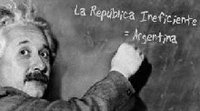[Capítulo II: Bienestar y distribución del Ingreso] Trade Liberalization, Inequality and Poverty Reduction in Latin America
[http://siteresources.worldbank.org/INTDECABC2006/Resources/GuillermoPerry.PDF]
Trade Liberalization, Inequality and Poverty Reduction in Latin America
Guillermo Perry, Marcelo Olarreaga
Paper presented at ABCDE, San Petersburg, January 2006
ABSTRACT
Trade liberalization in the late eighties and early nineties in Latin America was accompanied by increases in skill premiums and wage inequality, and in several countries in overall income inequality, a result unexpected by many. Further, as shown in the paper, observed effects on poverty varied widely across countries where wage and income inequality increased or remained essentially unchanged. This paper argues that this was mainly the result of four factors:
(1) relative factor endowments, as most Latin American countries are rich in natural resources (which, are in general complementary with capital and skills) and were more capital abundant than other developing countries with large pools of unskilled labor, such as China and India, that were already integrating into the world economy by the time of Latin American trade liberalization;
(2) dynamic effects of trade that led to an acceleration of skill-biased technical change and Schumpeterian creative destruction, which led to an increase in demand for skills in most industries;
(3) initial conditions and contemporary events that make predictions based on a simple factor abundance model difficult to generalize; for example the pre-reform structure of protection was biased towards unskilled intensive sectors in most LAC countries and tariff reductions naturally led to a relative increase in demand for skills, but differences in consumption bundles across income groups and exchange rate policies also complicate predictions;
(4) the impact that trade reform had on imperfectly functioning labor markets, such as potential transitions in and out of unemployment, informality, as well as income volatility are likely to affect and sometimes change the direction of the impact of trade reforms on income inequality and poverty.
Finally, the paper shows that the effect of trade on poverty (and income inequality) depends largely on other policies being implemented simultaneously, and that the impact of trade on poverty reduction can be significantly enhanced (and the effects on inequality mitigated) by policies that increase the provision and access to skills and other productive assets for the poor.
Ver paper completo:
GuillermoPerry.PDF (Objeto application/pdf)
--
Posted by Alberdi & Urquiza to Capítulo II: Bienestar y distribución del Ingreso at 1/21/2006 02:05:35 PM
Trade Liberalization, Inequality and Poverty Reduction in Latin America
Guillermo Perry, Marcelo Olarreaga
Paper presented at ABCDE, San Petersburg, January 2006
ABSTRACT
Trade liberalization in the late eighties and early nineties in Latin America was accompanied by increases in skill premiums and wage inequality, and in several countries in overall income inequality, a result unexpected by many. Further, as shown in the paper, observed effects on poverty varied widely across countries where wage and income inequality increased or remained essentially unchanged. This paper argues that this was mainly the result of four factors:
(1) relative factor endowments, as most Latin American countries are rich in natural resources (which, are in general complementary with capital and skills) and were more capital abundant than other developing countries with large pools of unskilled labor, such as China and India, that were already integrating into the world economy by the time of Latin American trade liberalization;
(2) dynamic effects of trade that led to an acceleration of skill-biased technical change and Schumpeterian creative destruction, which led to an increase in demand for skills in most industries;
(3) initial conditions and contemporary events that make predictions based on a simple factor abundance model difficult to generalize; for example the pre-reform structure of protection was biased towards unskilled intensive sectors in most LAC countries and tariff reductions naturally led to a relative increase in demand for skills, but differences in consumption bundles across income groups and exchange rate policies also complicate predictions;
(4) the impact that trade reform had on imperfectly functioning labor markets, such as potential transitions in and out of unemployment, informality, as well as income volatility are likely to affect and sometimes change the direction of the impact of trade reforms on income inequality and poverty.
Finally, the paper shows that the effect of trade on poverty (and income inequality) depends largely on other policies being implemented simultaneously, and that the impact of trade on poverty reduction can be significantly enhanced (and the effects on inequality mitigated) by policies that increase the provision and access to skills and other productive assets for the poor.
Ver paper completo:
GuillermoPerry.PDF (Objeto application/pdf)
--
Posted by Alberdi & Urquiza to Capítulo II: Bienestar y distribución del Ingreso at 1/21/2006 02:05:35 PM













<< Home